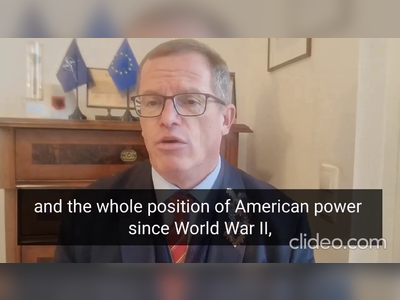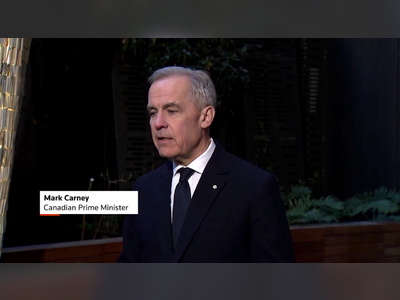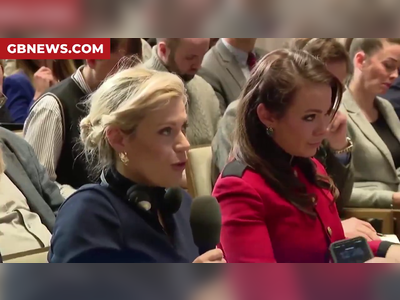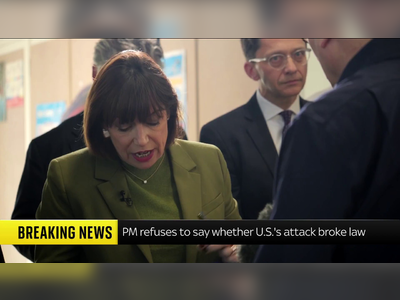
Report Reveals Escalating Youth Mental Health Crisis in Europe
Recent discoveries highlight substantial economic and social costs, prompting a move towards prevention and early intervention.
A recent report by the Z Zurich Foundation stresses the critical need to tackle Europe’s growing youth mental health crisis, revealing that one in six young Europeans grapples with mental health issues, incurring an economic cost of over six hundred billion euros each year.
Entitled A Vision for Youth Mental Wellbeing in Europe, the report emphasizes the significance of early intervention through prevention and promotion rather than focusing solely on treatment.
The COVID-19 pandemic has worsened the crisis, doubling the rates of adolescent depression in many European nations, with suicide becoming the second leading cause of death among those aged fifteen to nineteen.
Despite heightened awareness, deficiencies in funding, coordination, and actionable solutions continue, endangering the futures of millions of young individuals.
The Hidden Crisis
The report describes youth mental well-being as involving emotional resilience, strong relationships, and the ability to contribute to society, beyond merely the absence of mental ailments.
Yet, academic stresses, social media, financial insecurity, and systemic issues like climate anxiety are fueling an unprecedented rise in mental health challenges among Europe’s youth.
The societal impact is significant: young people with mental health issues face higher rates of school dropout, unemployment, and prolonged social exclusion.
Economically, the crisis costs Europe billions annually in lost productivity, healthcare, and social welfare expenditures.
Gregory Renand, Head of the Z Zurich Foundation, emphasized, “Young people are not just the future. They are an integral part of the present and essential community members. Their well-being affects us all, and it is our shared responsibility to support them.”
A Call for Systemic Change
The report urges for a reallocation of resources, calling on policymakers to prioritize prevention and promotion equally with treatment.
Evidence shows that for every euro invested in mental well-being programs, up to twenty-four euros can be saved through reduced healthcare and social costs.
Key recommendations involve encouraging cross-sector collaboration among schools, healthcare providers, and community organizations, as well as enhancing the skills of educators and caregivers to address youth mental health effectively.
Initiatives like Portugal’s Por Ti program and Spain’s Henka project highlight the potential of prevention-focused approaches.
These programs equip young individuals with emotional regulation skills and promote mental health literacy, benefiting entire communities.
Sandra Camós, Director of Education at Fundación Princesa de Girona, remarked, “Each action we can take to promote students’ wellbeing can significantly impact their motivation and ability to overcome challenges.”
Coordination at the EU Level
Progress is underway at the EU level, with the European Commission dedicating one billion two hundred fifty million euros in 2023 to mental health initiatives, including youth-focused programs like Healthy Screens, Healthy Youth.
However, the report emphasizes the need for improved coordination between EU institutions and member states to expand effective programs and ensure consistent implementation.
Youth Voices and Digital Solutions
The report also underscores the importance of empowering young people to advocate for their mental well-being.
Youth-led initiatives, such as the Letters to Strangers campaign, have proven effective in reducing the stigma surrounding mental health discussions and fostering openness within communities.
Digital campaigns, like #InThisTogether, offer safe spaces for adolescents to seek support and share experiences.
A Unified Vision for Change
The Z Zurich Foundation's whitepaper calls for collective efforts to create an ecosystem where youth mental well-being is a priority.
This involves recognizing mental health as equal to physical health and ensuring that governments, private entities, and civil society collaborate to implement evidence-based strategies.
The findings align with European Commission President Ursula von der Leyen’s recent stress on mental health, including plans for a European Strategy on Mental Health.
However, the report cautions that success will depend on effective implementation and stakeholder collaboration.
As Sarah Kline, CEO of United for Global Mental Health, stated, “Let us commit to making youth mental wellbeing a priority, not just in words but in actions that lead to lasting change.” The report concludes with an optimistic outlook, showcasing programs like Por Ti and Henka as examples of what can be achieved through coordinated efforts and a commitment to systemic transformation.
Entitled A Vision for Youth Mental Wellbeing in Europe, the report emphasizes the significance of early intervention through prevention and promotion rather than focusing solely on treatment.
The COVID-19 pandemic has worsened the crisis, doubling the rates of adolescent depression in many European nations, with suicide becoming the second leading cause of death among those aged fifteen to nineteen.
Despite heightened awareness, deficiencies in funding, coordination, and actionable solutions continue, endangering the futures of millions of young individuals.
The Hidden Crisis
The report describes youth mental well-being as involving emotional resilience, strong relationships, and the ability to contribute to society, beyond merely the absence of mental ailments.
Yet, academic stresses, social media, financial insecurity, and systemic issues like climate anxiety are fueling an unprecedented rise in mental health challenges among Europe’s youth.
The societal impact is significant: young people with mental health issues face higher rates of school dropout, unemployment, and prolonged social exclusion.
Economically, the crisis costs Europe billions annually in lost productivity, healthcare, and social welfare expenditures.
Gregory Renand, Head of the Z Zurich Foundation, emphasized, “Young people are not just the future. They are an integral part of the present and essential community members. Their well-being affects us all, and it is our shared responsibility to support them.”
A Call for Systemic Change
The report urges for a reallocation of resources, calling on policymakers to prioritize prevention and promotion equally with treatment.
Evidence shows that for every euro invested in mental well-being programs, up to twenty-four euros can be saved through reduced healthcare and social costs.
Key recommendations involve encouraging cross-sector collaboration among schools, healthcare providers, and community organizations, as well as enhancing the skills of educators and caregivers to address youth mental health effectively.
Initiatives like Portugal’s Por Ti program and Spain’s Henka project highlight the potential of prevention-focused approaches.
These programs equip young individuals with emotional regulation skills and promote mental health literacy, benefiting entire communities.
Sandra Camós, Director of Education at Fundación Princesa de Girona, remarked, “Each action we can take to promote students’ wellbeing can significantly impact their motivation and ability to overcome challenges.”
Coordination at the EU Level
Progress is underway at the EU level, with the European Commission dedicating one billion two hundred fifty million euros in 2023 to mental health initiatives, including youth-focused programs like Healthy Screens, Healthy Youth.
However, the report emphasizes the need for improved coordination between EU institutions and member states to expand effective programs and ensure consistent implementation.
Youth Voices and Digital Solutions
The report also underscores the importance of empowering young people to advocate for their mental well-being.
Youth-led initiatives, such as the Letters to Strangers campaign, have proven effective in reducing the stigma surrounding mental health discussions and fostering openness within communities.
Digital campaigns, like #InThisTogether, offer safe spaces for adolescents to seek support and share experiences.
A Unified Vision for Change
The Z Zurich Foundation's whitepaper calls for collective efforts to create an ecosystem where youth mental well-being is a priority.
This involves recognizing mental health as equal to physical health and ensuring that governments, private entities, and civil society collaborate to implement evidence-based strategies.
The findings align with European Commission President Ursula von der Leyen’s recent stress on mental health, including plans for a European Strategy on Mental Health.
However, the report cautions that success will depend on effective implementation and stakeholder collaboration.
As Sarah Kline, CEO of United for Global Mental Health, stated, “Let us commit to making youth mental wellbeing a priority, not just in words but in actions that lead to lasting change.” The report concludes with an optimistic outlook, showcasing programs like Por Ti and Henka as examples of what can be achieved through coordinated efforts and a commitment to systemic transformation.
Translation:
Translated by AI
AI Disclaimer: An advanced artificial intelligence (AI) system generated the content of this page on its own. This innovative technology conducts extensive research from a variety of reliable sources, performs rigorous fact-checking and verification, cleans up and balances biased or manipulated content, and presents a minimal factual summary that is just enough yet essential for you to function as an informed and educated citizen. Please keep in mind, however, that this system is an evolving technology, and as a result, the article may contain accidental inaccuracies or errors. We urge you to help us improve our site by reporting any inaccuracies you find using the "Contact Us" link at the bottom of this page. Your helpful feedback helps us improve our system and deliver more precise content. When you find an article of interest here, please look for the full and extensive coverage of this topic in traditional news sources, as they are written by professional journalists that we try to support, not replace. We appreciate your understanding and assistance.











